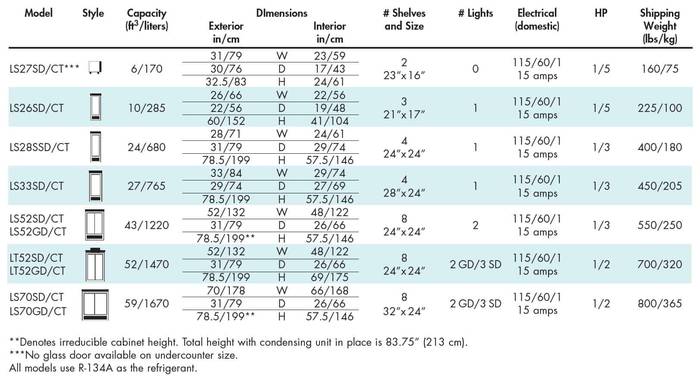Last Updated on August 30, 2021
Refrigerators are the most often utilized kitchen appliances, implying their importance in every kitchen. Refrigerators come in a wide range of types and sizes, with various manufacturers offering distinct functions.
This makes calculating the average weight of the refrigerator rather challenging. Knowing the typical weight of a refrigerator, on the other hand, will be beneficial in many situations. They are the heaviest kitchen appliances, and knowing their weight is important when moving them to a new location, as well as when exchanging or purchasing a new one.
A refrigerator typically weighs between 200 and 400 pounds. This is dependent on the refrigerator. The latest contemporary refrigerators weigh approximately 220 pounds, whereas the most regularly used refrigerators weigh between 250 and 350 pounds.
There are a variety of models available in varying sizes, which means that the weight of each size and model may vary.
If you’re considering getting a new refrigerator, the weight will be an important element to consider because it will affect the appliance’s mobility. Nowadays, technology has greatly aided us in reducing the weight of equipment, and there are refrigerators intended to be lightweight. Small freezers with a capacity of 10 cubic feet weigh approximately 110 pounds, whereas those with a capacity of 20 to 25 cubic feet weigh around 250 pounds.
What makes a Refrigerator heavy?
The weight of a refrigerator is determined by a number of factors. It is governed by a number of elements that influence a refrigerator’s overall weight. Let’s take a brief look at some of the elements that influence the refrigerator’s weight.

The Refrigerator Model
As you can see, there are numerous companies on the market that provide different fridges with variable sizes and weights, therefore the model of the fridge is extremely essential. French doors and door in door refrigerators are bigger and heavier than other types on the market.
Refrigerator Dimensions
The weight of a refrigerator has a direct relationship with its size. Refrigerators with a 10 cubic foot capacity weigh less than ones with a 25 cubic foot capacity.
When deciding whether or not to buy a refrigerator based on its weight, the size is also an important factor to consider. The height of the refrigerator tells us that a tall refrigerator has more accessories and room than a smaller one, but it also weighs more.
The manufacturer’s year of production
The weight of a refrigerator is determined by the period it was constructed. This is a crucial feature that informs us of the refrigerator’s weight and assists us in making a selection.
A propulsion tank, as well as hefty electrical components, are housed in ancient and conventional refrigerators. The fridge’s weight will increase as a result. They can weigh up to 250 pounds or more, but the newer generation of modern refrigerators include detachable components made of lightweight materials. The fridge becomes lighter as a result of this.
Features
The characteristics of a refrigerator have also contributed to its weight. A refrigerator with a lot of extra functions is likely to be heavier than a standard refrigerator. Different materials have been added to the weight of these characteristics.
Adding new features might be entertaining, but it can also add weight.
French Door Refrigerator’s Weight
French door refrigerators are generally larger than their counterparts. Their dimensions are usually longer and wider. These models tend to be heavier too.
In fact, they often weigh between 150-250 lbs. If we compare them to side by side refrigerators, then we find out that french door refrigerators are about 30% heavier than their counterparts. However, if we compare them to top loading refrigerators, then we notice that french door refrigerators weigh only 15% more than their counterparts.
Side-By-Side Refrigerator’s Weight
side-by-side refrigerators weigh much less than french door refrigerators. In fact, they weigh around 100lbs each. Therefore, when buying a side-by-side refrigerator, make sure that your budget allows for such a purchase.
Top Loading Refrigerators vs Side By Side Fridge
Top loading refrigerators weigh slightly more than side-by-side refrigerators. Top loaders weigh approximately 120lbs while side-byside refrigerators weigh 110lbs.
However, there are many factors that determine how heavy a particular model of refrigerator is. For instance, some manufacturers use different materials for construction. Some even use aluminum instead of steel.
How Much Do Mini-Fridges Weigh?
Mini fridges weigh considerably less than full-sized units. Most mini fridges weigh between 50-100 lbs.
If you want to save space, then a mini fridge may be just what you need. It does not take up any additional storage area because it occupies very little space compared to other types of refrigerators.
Top Freezer Refrigerator Weight
Top freezer refrigerators weigh significantly more than regular freezers. They weigh anywhere from 200-300 lbs.
This means that if you buy one, you should expect to pay an exorbitant amount of money. You would probably end up paying at least $1000 for a single unit. This makes sense since most people do not own two refrigerators.
Bottom Freezer Refrigerator’s Weight
Bottom freezer refrigerators weigh almost twice as much as freezer refrigerators. Bottom freezer refrigerators weigh around 180-200 lbs.
They are quite popular among homeowners who like to keep food items frozen. Since they occupy a large volume, they require a bigger capacity.
Freezerless Refrigerator Weight
A freezerless refrigerator weighs around 80 pounds. The reason why this type of refrigerator has become so popular is due to its compact size.
It takes up minimal space in comparison to traditional refrigerators. Moreover, it requires no electricity or gas supply. All you need is a small battery pack. The best thing about this kind of refrigerator is that it saves energy. It uses less power than conventional refrigerators.
Why Are Refrigerators So Heavy?
Refrigerators are extremely heavy due to several reasons. First, they contain large amounts of ice and water inside. Second, they require electricity to operate. Thirdly, they must maintain an internal temperature at low levels. Fourthly, they should keep food fresh.

Fifthly, they should protect against moisture loss from foods. Lastly, they should provide adequate insulation. All these requirements contribute towards the weight of a refrigerator.
What Is The Average Size Of A Refrigerator?
A typical size of a refrigerator is 40 inches wide x 24 inches deep x 31 inches tall. This means that most people will fit into one unit.
Most modern refrigerators come in two sizes: small or medium. There are also smaller ones available like "mini", "compact", etc.
Conclusion
The above information provides all the necessary details regarding the various kinds of refrigerators available today. If you have been looking for such information, I hope you found it useful.
- How to Prolong the Life of Your Kitchen Appliances - December 22, 2024
- How Long does Yogurt Take to Freeze - May 5, 2023
- Top 10 best restaurants in Montana - May 1, 2023
